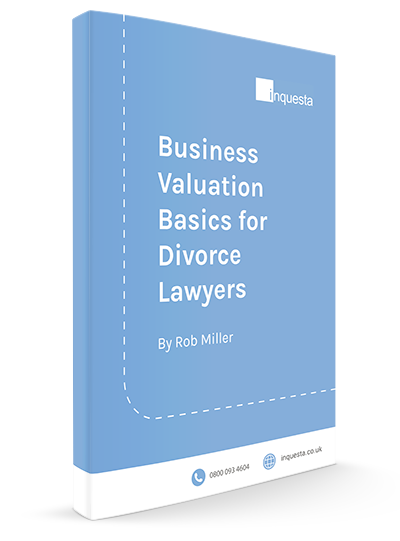What is Cash Flow Management?
Cash flow management involves analysing how much money is coming into a business and comparing it against the firm’s outgoings, such as bills and staff wages. Its purpose is to predict the amount of available funds a business will have for the future, as well as understanding how much the company needs to make to cover its debts.
Available cash is the lifeblood of any organisation. Without it, a firm won’t be able to pay bills such as taxes and utilities when they fall due, settle invoices from suppliers, or even cover its employees’ salaries. Cash flow can be described as positive or negative. If you have more money coming into your company than going out, then you have a positive cash flow. Should more funds be leaving your business than coming in, your cash flow is negative.
Cash flow management is not just about analysing how much is coming in and out of a firm, but also working out when the business gets most of its money and whether it will be there in time to cover large expenses. For example, it’s all well and good to have £35,000 a month in income and have outgoings worth £25,000, but what if the vast majority of this doesn’t come in until the end of the month and you have a tax bill due midway through? You’re clearly going to struggle.
In this scenario, a company is going to want to see if there is any way it can get its hands on this money sooner. It’s not uncommon for businesses to have a large chunk of assets tied up elsewhere, such as in stock or unpaid invoices from third party firms. Effective cash flow management can help it see whether it needs to buy less inventory or set out new payment terms to ensure that more cash is readily available.
Another use of cash flow management is to work out how much spare money the business has. If it has more than enough funds to cover its expenses as they fall due, the excess can be used to grow its operations further — such as hiring more staff, buying new equipment, or moving into bigger premises. Timing is everything in business, so you’ll want to make sure that you’re expanding safely and not putting yourself at risk. Looking after your cash flow lets you make informed decisions.
Why is Cash Flow Management Important?
Effective cash flow management lets you understand how your company is performing, alerts you to any risks, and allows you to make important decisions based on facts. For small businesses, looking after your money can also be the difference between success and failure. Without it, you risk going down a slippery slope that could result in the closure of your firm.
There are several reasons why cash flow management is important. They range from the ability to understand your spending habits and monitoring your payment terms, to making decisions about investment and improving your financial planning.
It’s a sad truth that 20% of new businesses fail within the first year, with poor cash flow management one of the most common causes. Getting it right can give you a solid foundation from the outset and provide a bit of breathing space to cover unexpected outgoings.
Ways to Improve Cash Flow
A business can improve its cash flow in a number of ways, including:
- Negotiate payment terms to ensure to get your money promptly
- Understand where your money is going
- Consider credit checks for customers who won’t pay in cash
- Get to grips with payment cycles and seasonality
- Reduce unnecessary expenditure
- Regularly monitor your firm’s cash flow
- Consider leasing equipment instead of buying
- Issue accurate invoices that are sent on time
- Think about invoice factoring
Although there are several potential options above, it’s important to understand that this is not an exhaustive list. It’s also true that not all of these cash flow management strategies will work for every business — it’s a good idea to seek specialist guidance if you’re ever unsure.
Download Your Free Guide to Business Valuation for Divorce Lawyers
Ensure that all of the prized assets in your divorce case, including a business, are valued properly and appropriately.
The process of valuing a company is likely to be one of the most complicated aspects of any divorce proceeding. Our FREE downloadable booklet is designed to support you. Download today and find out more

How to Manage Cash Flow Effectively
There are several key steps to effective cash flow management. These range from getting a clear understanding of your current financial position and searching for ways to improve, to keeping up with reporting and realising when you need assistance. If done correctly, your firm should have enough funds available to cover unexpected expenses and invest in its own future.
Here’s our step by step process for effective cash flow management in more detail:
How Inquesta Assists with Managing Cash Flow
As specialist business recovery consultants, Inquesta understands the complexities involved in navigating a company through financial difficulties. We know this is likely to be an incredibly difficult time, and are dedicated to offering unrivalled levels of support that our clients can rely upon.
When time is of the essence, a clear head is what’s required to ensure that the right decisions are made. Our pragmatic and meticulous approach offers just that — an opportunity to take stock of the situation and devise the most appropriate solution.
Because no two companies are ever the same, we begin by getting an in-depth understanding of your business and its requirements. We’ll then review and analyse your firm’s cash flow and help you make the necessary plans for restructuring and scheduling your short-term cash flow.
The Inquesta team is well-versed in all aspects of business recovery, including corporate finance, company voluntary arrangements, and administration. We’re also specialist forensic accountants and licensed insolvency practitioners, which means we can offer an all-encompassing service that is difficult to match.
We’ve assisted companies in all areas of industry with sorting out their cash flow problems and successfully restructuring their operations. To find out more about how we can help you too, contact a member of our team today.
Get In Touch
Our Specialist Team
If you’re looking for expert cash flow management advice, you can rely on Inquesta to help.

Steven Wiseglass
Director of Insolvency
A co-founder of Inquesta, Steven is a licensed Insolvency Practitioner with over a decade of experience in the field. He is a member of the Insolvency Practitioners Association, Association of Business Recovery Professionals (R3), and his insolvency licence is issued by the Insolvency Practitioners Association. In addition, he sits on the R3 committees of the North West Regional Committee.
Steven specialises in advising directors of small to medium-sized businesses, and has a wealth of expertise in providing the most appropriate advice whatever the firm’s circumstances may be. He has also been instrumental in helping company directors save their business and rebuild them into successful enterprises.
FAQs
Latest Articles
What are the Different Types of Costs in Business?
If you’re asking yourself, ‘what are the different types of costs in business’, you’re doing the right thing. When it comes to running a company, it’s vital to have a full and all-encompassing understanding of [...]
4 Advantages of a Cash Flow Statement
In business, it always helps to keep up to date on the ins and outs of your company. Whether this is staying aware of all inventory that is shipped out, being aware of any notable [...]
How to Identify Cash Flow Problems
You can have an excellent USP, a great product, a dedicated customer-base, and a busy business, but if you aren’t able to maintain a good cash flow, you are straddling a fine line between [...]





